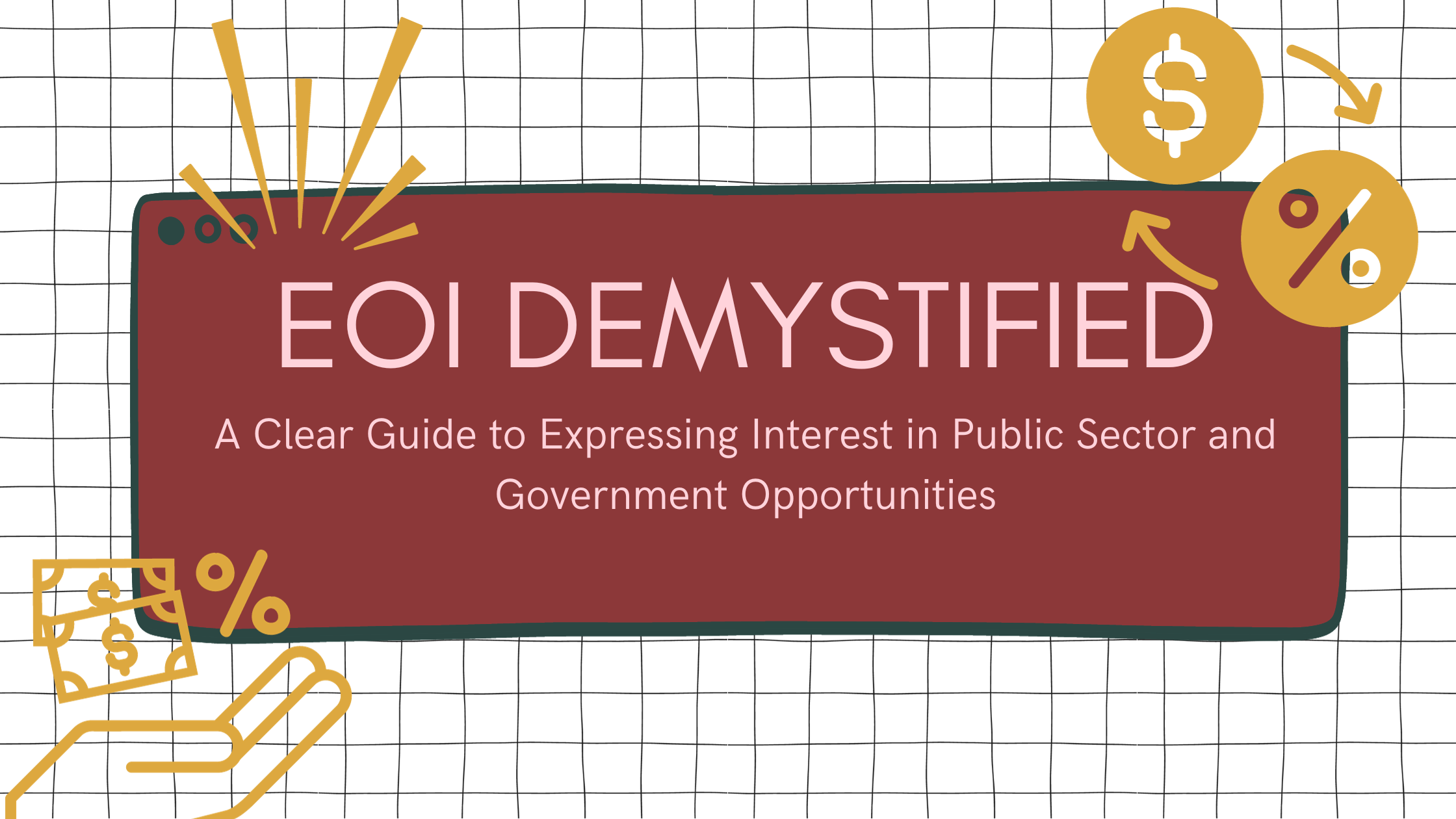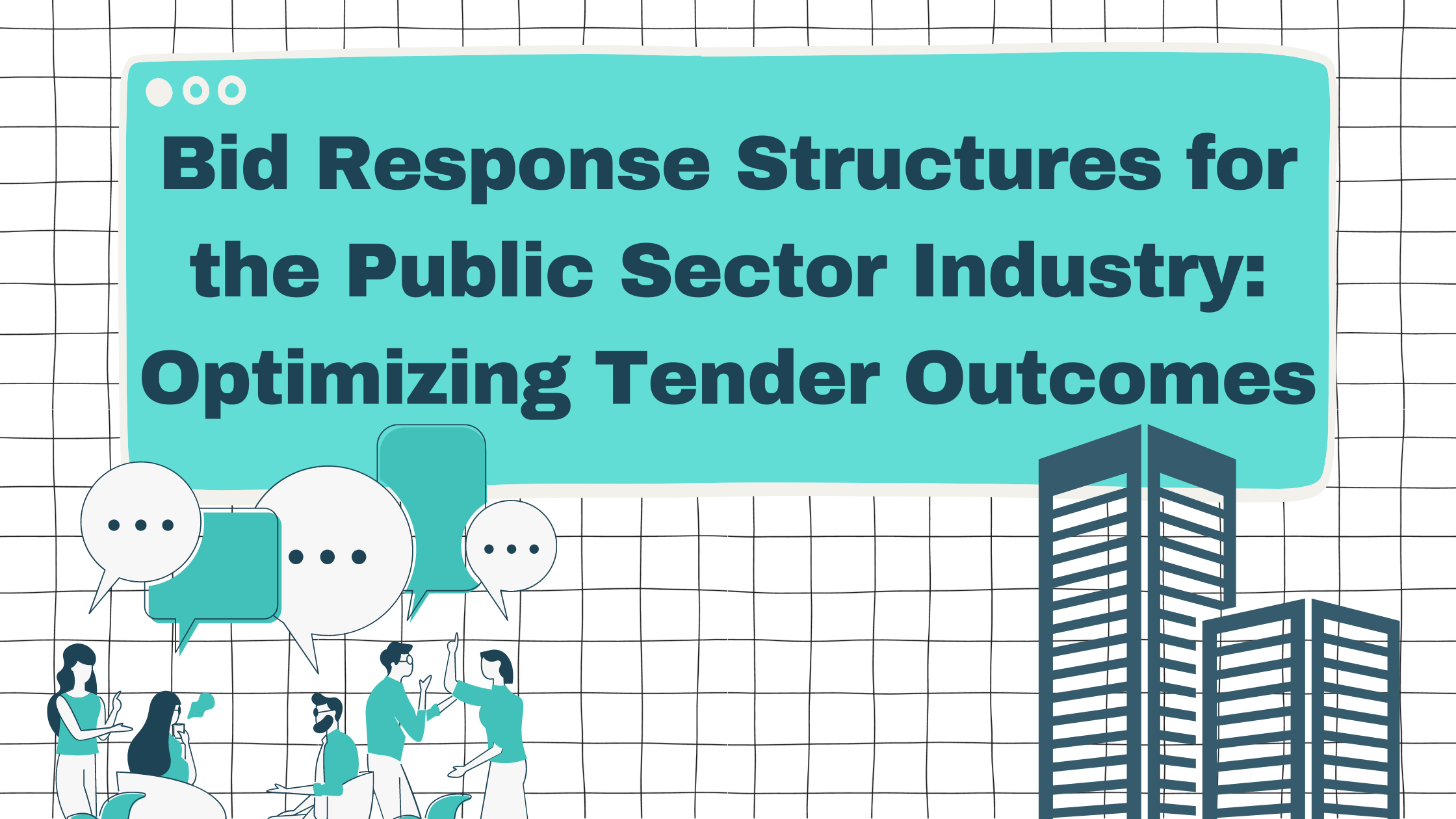Mastering Proposal Writing Services and RFP Writing for Successful Contract Acquisition

Need Help with Your Bid?
Get in touch by filling out the form and one of our advisors will be in contact.
Contact UsThe Essentials of Construction Bid Writing: Key Strategies for Success
In the competitive world of construction, bid writing is a crucial skill that can set apart successful firms from those that struggle to secure contracts. As someone who's navigated this complex terrain, I can affirm that understanding the nuances of crafting a persuasive and comprehensive proposal is critical. Effective construction bid writing is not just about pricing; it's also about demonstrating your ability to deliver quality work on time, matching the project's requirements to your expertise, and showcasing your past successes. It requires a balance between being thorough and concise, as bidding documents must be detailed yet easy to comprehend.

My approach to bid writing involves meticulous preparation, where I ensure that all information is accurate and comprehensive, all while aligning with clients' expectations. This preparation includes understanding the scope of the project, the client's needs, and how my services align with those needs. When writing the bid, I maintain clarity and precision to build confidence in my potential clients, proving that I am knowledgeable and capable of fulfilling their project's demands.
Key Takeaways
- Effective bid writing can significantly increase the chances of winning construction contracts.
- Thorough preparation and a deep understanding of the client's needs are paramount to crafting a successful proposal.
- Clarity, precision, and a demonstration of expertise are key to building confidence in a bid's submission.
Understanding the Bid Writing Process
In the realm of construction tenders, I am aware that the bid writing process is a complex and nuanced procedure. It's essential to grasp the significance of planning, constructing bids that stand out, and the critical roles within this sector. My focus here is to provide clarity on what entails effective bid writing.
An Overview of Construction Bidding
Construction bidding is the foundation on which I build my strategy to secure contracts. It involves preparing and submitting a proposal, or a bid, to undertake a construction project. The process begins with a thorough understanding of the tender documents and requires meticulous preparation to address the client's requirements. My expertise is applied to ensure that the bid is both competitive and comprehensive, detailing how my approach to the project will meet or exceed the client's expectations.
Role of a Bid Writer in Construction
As a bid writer in the construction sector, my role encompasses more than just writing; it is about being an expert who understands every facet of the building project. My responsibility is to articulate a compelling narrative about our capabilities and approach. From the initial review of tender documents to the final submission and solicitation of feedback, my focus is unwavering. I employ precise planning and execution to ensure that every submission is tailored to reflect the client鈥檚 needs and showcases the value I can bring to the project.
Key Stages of Bid Writing
The bid writing process can be delineated into several key stages:
- Preparation: Before penning the first word, I immerse myself in understanding the documentation and the client's requirements. This due diligence is imperative to all subsequent steps.
- Drafting: With preparations complete, I begin to formulate the response. This draft serves as a blueprint for the bid and is refined through collaboration with my team.
- Review and Feedback: The first draft is never the final submission. I conduct thorough reviews and, where possible, seek feedback to fine-tune the bid, ensuring that it addresses all criteria laid out by the client.
- Finalization: The culmination of the bid writing process is the submission of the bid. This stage involves verifying that every aspect of the bid aligns with the client's demands and that my submission stands out in the competitive field of construction tenders.
Through my bid writing journey, I have learned that success is not just about winning; it is also about reflecting on each bid process to glean insights and continually refine my approach for future tenders.
Preparation for Bid Writing

In my experience, an effective bid is always founded on diligent preparation. I know that thorough analysis and comprehensive information gathering are non-negotiable steps in crafting a winning construction bid.
Analyzing the Invitation to Tender (ITT)
When I receive an Invitation to Tender (ITT), I immediately review it to understand the tender process and precisely what the client is seeking. This document outlines the scope of work, terms and conditions, and specific project requirements that guide my response. I assess whether the construction project aligns with my expertise and if I can meet the project requirements within the given timelines and budgets. During this stage, I also research potential clients to tailor my bid to their unique preferences and standards.
Gathering Project Information
Next, I gather all relevant project details that will aid in drafting my bid. This includes acquiring blueprints and design drawings that help to ascertain the project scope. By analyzing the technical documents, I am able to plan the required resources and timelines. I ensure that every aspect of the construction project is understood, from materials to manpower, and outline these details methodically in response to the ITT. Conveying my mastery of the project through a well-informed bid instills confidence in potential clients about my capability to deliver.
Crafting a Persuasive Proposal
The key to a successful bid proposal lies in its ability to clearly articulate the value and expertise I can provide. It's essential that every aspect of the proposal is detailed, providing evidence of my capabilities and how I intend to deliver on the client's needs.
Structuring the Proposal
I start by organizing my proposal with a clear structure, using headings and subheadings to guide the reader through the content. I ensure that the introduction sets the stage, summarizing the value proposition and demonstrating understanding of client's requirements. The body is segmented into logical sections, with deliverables and timelines presented in a manner that makes the proposal easy to navigate and review.
Detailing Construction Methodology
My proposal establishes the proposed construction services and methodologies with precision. It outlines the steps and processes I will employ, from initiation to completion. This section includes tables or bullet lists that break down complex processes into digestible pieces, and I back my methodology with evidence of past success, showcasing my expertise.
Including Costs and Estimates
Finally, a transparent and detailed cost estimate is crucial. I present a line-item budget that accounts for all possible expenditures, nominations for preferred suppliers, and any contingencies. This detailed budget format corroborates the financial feasibility of the project and clarifies that I have accounted for all aspects of the construction project in my bid.
Compliance and Submission Details

Before finalizing a construction bid, I ensure that my submission meticulously adheres to every legal requirement and addresses all compliance mandates. This diligence guarantees that my bid stands the best chance of being considered and, ultimately, accepted.
Adhering to Laws and Regulations
Specifications: My first step is to confirm that my bid aligns with the specifications outlined in the tender documents. These specifications dictate the scope of work and materials required, forming the backbone of any compliant submission.
Legislation & Health and Safety: My bid not only respects all contract conditions but carefully considers relevant legislation. I make it a point to stay abreast of the latest health and safety regulations, especially in the public sector, ensuring my bid includes all necessary accreditations and acknowledges any legislative changes.
Bid Management & Accreditations: Effective bid management demands maintaining current accreditations. I ensure my certifications, from OSHA compliance to professional licensures, are up to date and clearly documented within my bid.
Finalizing the Submission Package
Documentation & Submission: My documentation process is systematic. I organize my submission package with a clear and concise template, which includes a checklist of all required documents for easy verification.
Contracts & Signatures: Prior to submission, I thoroughly review the contract conditions and provide all necessary signatures. This process affirms that my bid is not only compliant but is also formally endorsed by the appropriate authority in my company.
By following my structured approach, I create a robust and compliant construction bid that meets the stringent demands of any tendering process.
Post-Submission Strategies

After submitting a bid, my work isn't over; this phase is crucial for my long-term success and growth. I focus on three main areas: analyzing feedback to improve, strengthening client relationships, and maintaining a steady pipeline for future opportunities.
Analyzing Feedback for Improvement
I scrutinize the feedback I receive, whether I win or lose a bid. This evaluation is a gold mine for honing my bidding process. For every project, I look at the evaluation criteria and compare them against my submission. By doing this methodically, I am able to enhance my track record and refine my approach to align better with client expectations.
Strengthening Client Relationships
I prioritize ongoing communication with all my clients. Even if my bid was not selected, I reach out to express my gratitude for the opportunity and to seek insightful feedback. Demonstrating that I value their opinion and experience helps to cultivate a relationship for potential future collaboration and strengthens my portfolio.
Maintaining a Pipeline for Future Bids
I am always building and maintaining a robust pipeline for future bids to ensure continuous growth of my portfolio. I keep track of procurement notices and pre-qualification requirements for sectors I am interested in. This proactive approach means I can prepare with a clear understanding of the social value and project delivery criteria that future clients might be focusing on, which in turn positively impacts my bid-hit ratio.
Frequently Asked Questions
I understand the intricacies of construction bid writing and through these FAQs, I aim to provide insights that will assist writers in enhancing their proposals.
What are the key components to include when writing a construction bid?
When I author a construction bid, I ensure it includes a comprehensive scope of work, a detailed cost breakdown, timelines, the qualifications of my team, and a clear outline of our experience and past project successes. It's imperative to address these elements succinctly to meet the buyer's requirements.
How can one ensure their construction bid stands out in the tender review process?
To make a construction bid stand out, I focus on clearly showcasing the unique strengths of my business and aligning them with the client's goals, while also maintaining strict compliance with the tender specifications. Emphasizing innovation and providing compelling evidence of past project successes can make a significant difference.
Can you outline the typical steps involved in the construction bidding process?
The typical construction bidding process I participate in involves several key steps: obtaining and reviewing the tender documents, preparing the bid with a keen eye on compliance and competitiveness, submitting the bid before the deadline, and participating in post-submission evaluations and potential negotiations.
What strategies do successful bid writers employ to win tenders?
Successful bid writers, in my experience, thrive on their deep understanding of their client's needs, meticulous attention to detail, and the ability to articulate the value proposition of their services. They often engage in thorough research and are adept at creating clear and convincing narratives.
How important is the tender opening process, and how does it affect bid selection?
The tender opening process is crucial as it guarantees the fairness and transparency of the bidding environment. My bids are prepared knowing they will be scrutinized alongside competitors' submissions under strict procedures, impacting the final selection based on adherence to the tender requirements.
What are common mistakes to avoid in construction bid writing to increase chances of success?
Common mistakes I avoid are overlooking the fine details of the tender documents, missing deadlines, submitting an unstructured or poorly formatted bid, and failing to provide a robust and verifiable justification for cost estimates. Addressing these pitfalls is essential to heightening the likelihood of success.
Ready to start your search?
Get in touch by filling out the form to the right and one of our advisors will curate a personalised selection for you.
Get in touchBlogs. Guides. Helpful advice.

Mastering Proposal and RFP Writing for Government and Public Sector Opportunities

Proposal and RFP Writing Services: Enhancing Public Sector Tender Outcomes

.svg)